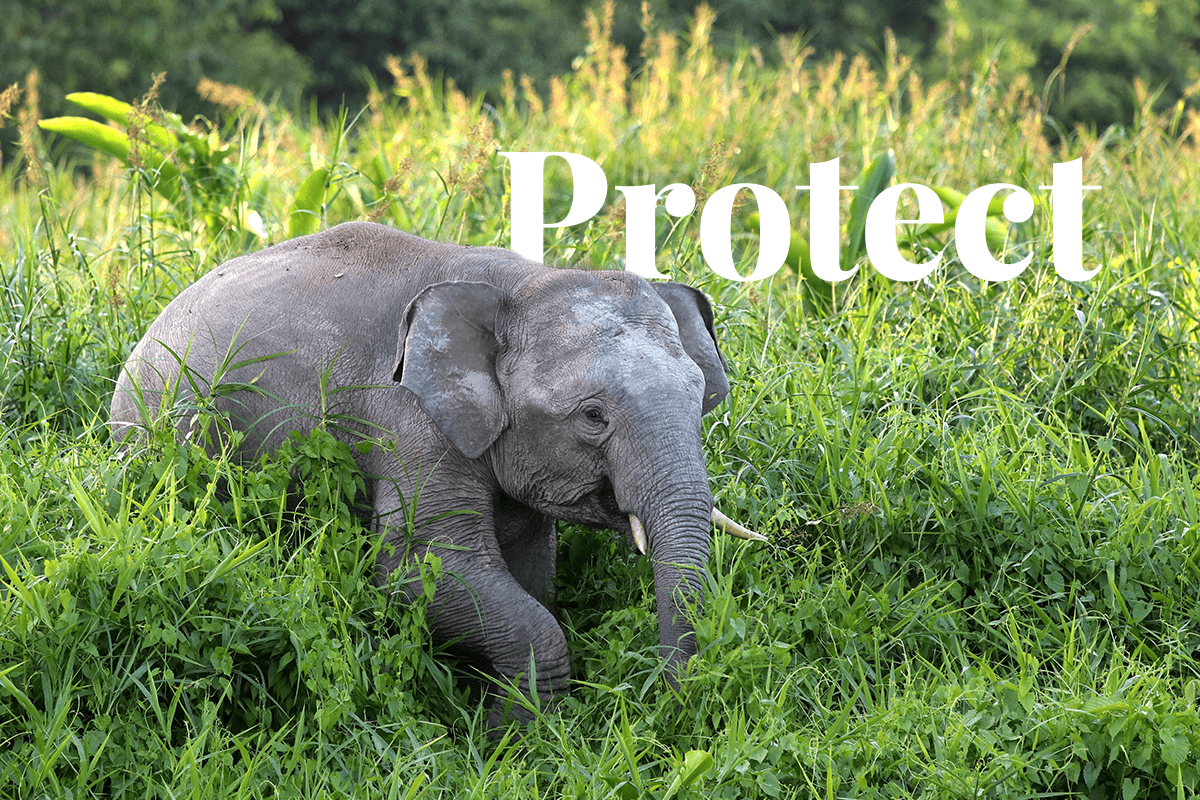The Rhino and Forest Fund (RFF), a German conservation NGO, is working to create wildlife corridors between protected areas in East Sabah, Malaysian Borneo. To do so, the RFF is buying up former oil palm plantations and restoring them. The organisation has already restored a wildlife corridor between Malaysia’s Tabin and Kulamba wildlife reserves by designating and reforesting approximately 2,300 hectares of previously unprotected forest land. To complete the corridor, RFF acquired a key 65-hectare area between the protected forests.
 Bornean pygmy elephant, Malaysia.
Bornean pygmy elephant, Malaysia.
The reforestation project aims to increase forest connectivity to ensure the survival of species such as the Bornean pygmy elephant and the Banteng cattle, both of which are endemic and endangered. The RFF has spent €885,000 ($950,000) to purchase and restore the 65-hectare site, with partners Zoo Leipzig and Borneo Orangutan Survival Germany contributing most of the funds.
Read more: From the brink of extinction: four endangered species that made a comeback
This innovative initiative is a pioneering step for a small NGO, as RFF is the only organisation known to purchase and restore former oil palm plantations. The land is not purchased directly, but instead, an agreement is made to compensate the landowner, with the Sabah Forestry Department acting as the trustee and the land being donated to the state government.
Restoration of the first pilot site began in February 2020, and a recognisable forest is already starting to form. RFF is now collaborating with the Sabah Forestry Department to reclaim and restore state land encroached for oil palm. The RFF has also begun working in the Silabukan forest reserve, south of Tabin, where they have already replanted 63 hectares situated on a formerly illegal oil palm plantation and identified another potential 400 hectares to restore. More than 36 species of plants occurring in neighbouring forests and species native to the region have been planted.
Overall, the project will connect fragmented forests to allow for the movement and survival of wildlife. Without this intervention, wildlife habitats would remain increasingly fragmented as oil palm plantations continue to spread.
Planting trees offers plenty of benefits, including capturing carbon emissions, safeguarding natural habitats, and protecting endangered species (which also contribute to decarbonisation efforts). DGB Group’s nature-based projects are designed to ensure the protection and benefit of local wildlife, contributing to global biodiversity conservation.
Learn how you can contribute too: contact our experts

